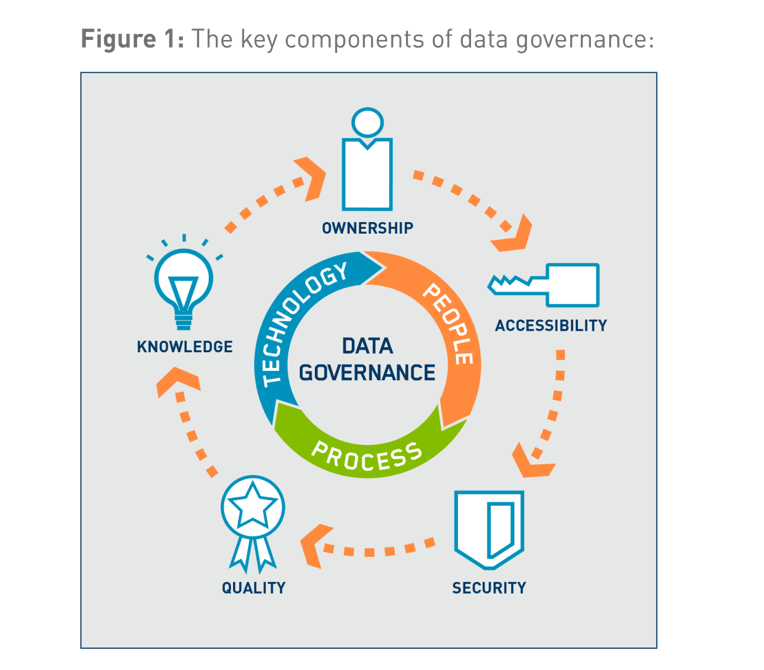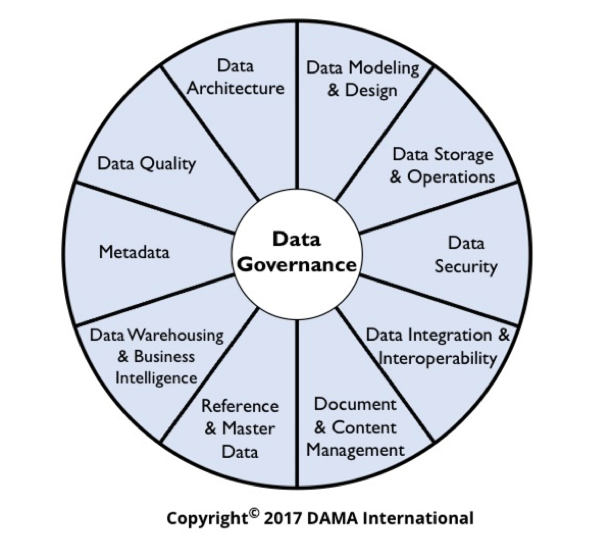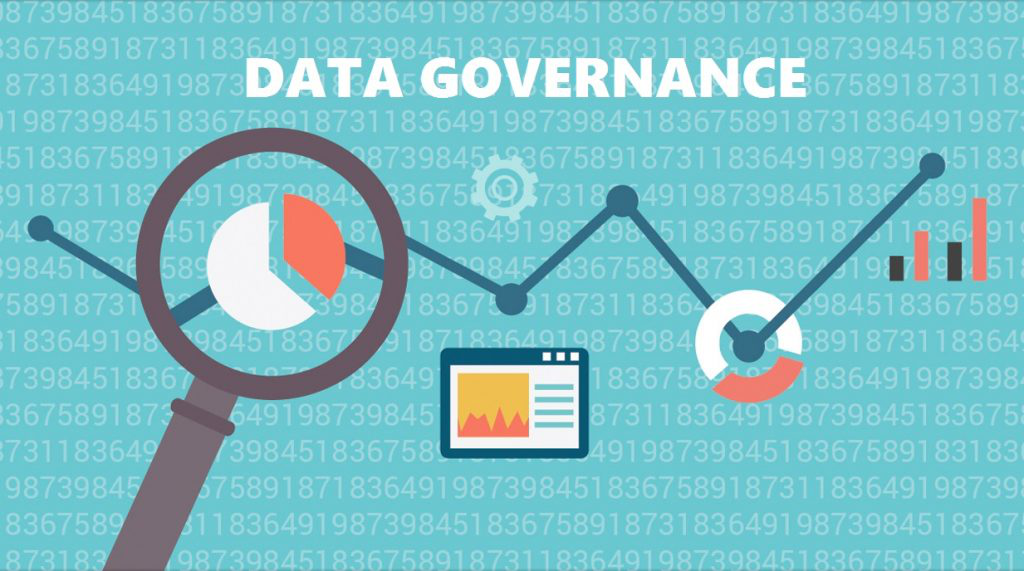An increasing number of businesses today have started to realize the importance of a sound Data Governance Strategy to improve the returns from enterprise business investments. A Forbes study also suggests that strong data governance not only enables business intelligence success for organizations, but it also makes advanced BI capabilities readily available to mainstream business users.
So, what exactly is Data Governance?

Data governance is a blanket-term used for data management practices used by various stakeholders of an organization to ensure critical business data is managed and protected efficiently.
It is, in fact, a vital aspect of the quality control process to allow companies to have reliable and consistent datasets to assess performance and make better management decisions.
To put it simply, data Governance includes the people, processes, and technologies required to manage and protect the company’s data assets. This is to ensure complete, trustworthy, understandable, secure, and discoverable enterprise data.
A robust data governance framework is, therefore, central to the success of any data-driven organization because it ensures that data, the most valuable asset for an enterprise, is adequately maintained, protected, and maximized.
But why is it needed, you ask?
The need for a data governance framework and a closely monitored data management strategy arises due to complex data types, diverse data sources, and interdependent data-technology platforms of today’s data-driven business environment.
The data governance model thus sets the blueprint for managing various data assets of an organization, including the operational framework, overall architecture, and the processes.
Why is Data Governance important?

Data Governance plays a crucial role in ensuring that an organization’s critical information assets are correctly, efficiently, and proactively managed to secure its privacy, trust, and accountability.
Data Governance framework primarily comprises of a collection of data, revising and standardizing it, and ensuring that the data is suitable for use.
The process not only allows for making the data consistent, but it also ensures that the critical data is available at the right time in a standardized and reliable form. Further, adopting and implementing robust data governance can be instrumental in improving the productivity and efficiency of an organization by-
- Improving data quality
- Maximizing the use of data to make business decisions
- Making data accurate and complete
- Improving financial performance and business planning
- Maximizing business profits
Benefits of Data Governance
Implementing an effective data governance model has several benefits for organizations. Some of these include:
- It ensures compliance with data regulations such as GDPR
- Helps in increasing the overall revenue through the lower occurrence of errors
- Reduces costs related to data management
- Increases transparency and operational efficiency for any data activities
- Improves data quality
How to ensure sustainable implementation of the data governance framework

Despite the growing importance of data governance, enterprises often struggle when implementing a new data governance initiative due to the below-stated obstacles-
- Questions regarding data quality and ownership
- The dilemma regarding where to begin the process and how to prioritize which data streams to govern first
- Dealing with concerns about data lineage
- Questions about competing for project and resources such as budget, time, and people
The ultimate objective of data governance should be to generate the maximum possible return on data and ensuring the capture of critical opportunities to leverage various data assets.
Here are some best practices to ensure successful implementation of data governance framework –
- Build a robust data governance team
The importance of building a dedicated governance team is enormous, as data governance involves a considerable amount of decision-making and management. Further, within an organization, various departments use data for different purposes, making it essential to appoint dedicated data governance advocates from diverse lines of business.
These representatives help in ensuring collaboration across the enterprise, for successful implementation of data governance processes, by promoting data understanding, encouraging data utilization, and building trust in data assets.
- Think big picture while starting small
The philosophy of data governance is primarily rooted in people, process, and technology. While it is essential to keep all three at the center when planning and executing the strategy, it is also equally important to take small steps while keeping the bigger picture in mind. Start the process by identifying and hiring the right people, followed by defining a process, and finishing by sourcing the technology to get the task done.
- Build a strong business case
To successfully implement a data governance policy, it is crucial to identify the advantages and opportunities that robust data quality will bring to the organization. Identify the changes and improvements that it will bring to the business, including efficiency, increased revenue, and better customer experience.
- Prioritize metrics to measure progress
While implementing a data governance framework, enterprises need to be able to measure progress and see success using appropriate metrics. It allows them to show the overall progress and success of the changes, along with ensuring that the process is effective in practice.
Also, it is essential to choose metrics that allows businesses to determine if their framework is fulfilling its objectives. Some commonly used metrics include data quality scores, adoption rates, and data rectification costs. These KPIs and metrics are crucial for tracking the progress of a program and help in finding ways to improve it in the future.
- Maintain constant communication
Irrespective of where the organization is at, with regards to the data governance implementation program, it is crucial to communicate frequently. The importance of consistent and effective communication in ensuring a successful data governance model is immense as it helps organizations and teams avoid common challenges and pitfalls associated with data governance.
To wrap it up
With a substantial rise in the volume and value of data, the concept of data governance has also evolved over the years.
A well-defined data governance strategy can help enterprises in ensuring that the data is easily accessible, accurate, linked, and well-managed, to set up the business for long-term success.
With quality data, enterprises also get the necessary insights to drive their business forward, leveraging the power of AI, machine learning, and advanced analytics.
